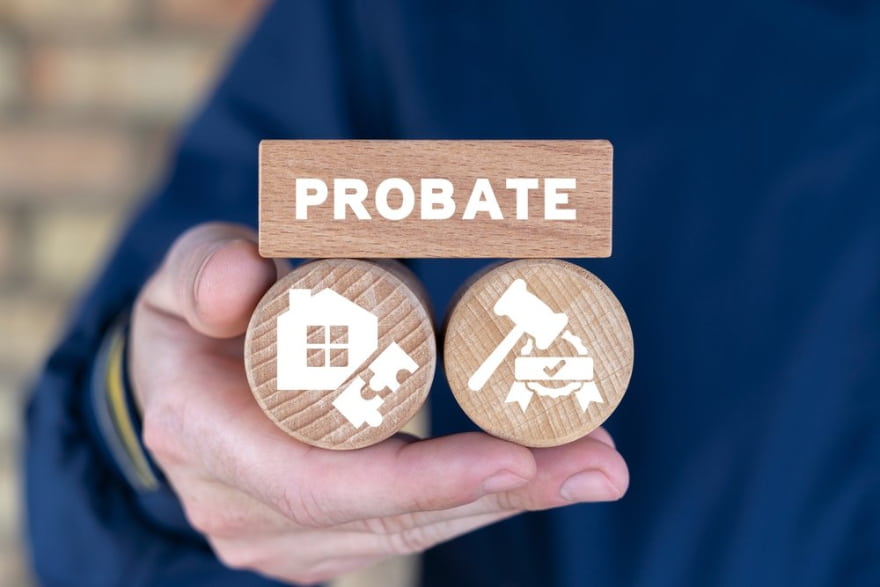Frequently Asked Questions
How to find a will attorney?
Finding a will attorney involves researching local legal professionals who specialize in estate planning and probate. Look for recommendations, read online reviews, and consider scheduling consultations to ensure they meet your needs.
How much is a will attorney?
The cost of hiring a will attorney varies based on factors such as location, complexity of the will, and the attorney's experience. In Southlake, Texas, fees typically range from $300 to $1,500 for comprehensive services.
What does inheritance lawyer do?
An inheritance lawyer assists clients in navigating the legal complexities of estate distribution, ensuring that heirs receive their rightful assets according to the deceased's wishes and applicable laws. They provide guidance on probate processes and resolve any disputes that may arise.
Is inheritance attorney necessary?
An inheritance attorney is often necessary to navigate the complexities of probate and estate laws. Their expertise ensures that the process is handled correctly, helping to avoid potential disputes and ensuring that the deceased's wishes are honored.
Does a will attorney draft wills?
A will attorney drafts wills to ensure they are legally sound and reflect the client's wishes. Their expertise helps navigate complex legal requirements, providing peace of mind that your estate plan is properly structured.
Where to find inheritance lawyer?
To find an inheritance lawyer, consider searching online for local law firms specializing in probate and estate planning, such as the Law Office of Bryan Fagan in Southlake, Texas, which offers personalized legal support for these matters.
What is a will attorneys role?
The role of a will attorney is to provide legal guidance in drafting, reviewing, and executing wills, ensuring that clients' wishes are accurately reflected and that the process complies with state laws.
How to choose inheritance lawyer?
Choosing an inheritance lawyer involves considering their experience in probate law, understanding of your specific needs, and ability to provide personalized support. Look for recommendations and schedule consultations to find the right fit for your situation.
Why need inheritance attorney?
The need for an inheritance attorney arises from their expertise in navigating complex probate laws and ensuring that assets are distributed according to the deceased's wishes. They provide valuable guidance and representation throughout the legal process, minimizing disputes and protecting your interests.
How much inheritance attorney cost?
The cost of hiring an inheritance attorney varies based on factors such as location, complexity of the case, and attorney experience. Typically, fees can range from $150 to $500 per hour, or a flat fee for specific services.
What does probate attorney do?
A probate attorney assists clients in navigating the legal process of settling an estate after a person's death. They handle tasks such as filing wills, managing estate assets, and ensuring compliance with state laws.
Is a will attorney necessary?
A will attorney is necessary to ensure that your will is legally valid, properly drafted, and aligns with your wishes. Their expertise helps navigate complex legal requirements, minimizing potential disputes among heirs.
Is probate attorney necessary?
A probate attorney is often necessary to navigate the complexities of the probate process, ensuring that estate matters are handled correctly and efficiently, especially in determining heirship and filing required documents.
Why hire a will attorney?
Hiring a will attorney is essential for ensuring your estate plan is legally sound and effectively reflects your wishes. Their expertise helps prevent disputes, navigate complex legal requirements, and provide peace of mind for you and your loved ones.
Can a will attorney help?
A will attorney can provide essential assistance in drafting, reviewing, and executing wills, ensuring that your wishes are clearly outlined and legally binding. They also help navigate any disputes or complexities that may arise during the probate process.
How to find probate attorney?
Finding a probate attorney involves researching local legal professionals who specialize in estate planning and probate law. Look for recommendations, read reviews, and schedule consultations to ensure they meet your needs in Southlake, Texas.
What qualifications should a will attorney have?
The qualifications a will attorney should have include a law degree, specialization in estate planning, and experience in probate law. Additionally, they should possess strong communication skills and a thorough understanding of state laws to effectively guide clients through the process.
How long does probate take in Texas?
The duration of probate in Texas varies, typically ranging from a few months to over a year, depending on the complexity of the estate and any potential disputes.
What are the benefits of hiring a probate attorney?
The benefits of hiring a probate attorney include expert guidance through the complex legal process, ensuring compliance with state laws, minimizing disputes among heirs, and saving time and stress during a challenging period.
Can I represent myself in probate court?
You can represent yourself in probate court, but it is often advisable to seek legal assistance. Navigating probate laws can be complex, and a skilled attorney can help ensure your rights are protected and the process runs smoothly.
What documents are needed for probate?
The documents needed for probate include the deceased's will, a death certificate, and any relevant financial documents, such as bank statements and property deeds, to facilitate the estate's administration.
How to contest a will in Texas?
Contesting a will in Texas involves filing a lawsuit in probate court, typically based on grounds such as lack of testamentary capacity, undue influence, or improper execution. It's advisable to consult with an attorney for guidance through this process.
What is the role of an estate planner?
The role of an estate planner is to assist individuals in organizing their financial and legal affairs, ensuring that their assets are distributed according to their wishes after death, while also minimizing taxes and avoiding probate complications.
How to prepare for a consultation with an attorney?
Preparing for a consultation with an attorney involves gathering relevant documents, outlining your questions, and clarifying your goals. This ensures a productive meeting focused on your legal needs.
What are common probate issues in Southlake?
Common probate issues in Southlake include disputes over will validity, challenges in determining heirship, and complications in asset distribution. These matters often require legal expertise to navigate effectively and ensure a smooth probate process.
How to handle disputes over inheritance?
Handling disputes over inheritance involves clear communication among heirs, reviewing the will and legal documents, and seeking mediation or legal counsel if necessary. Consulting an experienced probate attorney can help navigate complex issues and protect your rights.
What fees are associated with probate services?
The fees associated with probate services typically include court filing fees, attorney fees, and costs for appraisals or other necessary documentation. These fees can vary based on the complexity of the estate and the services required.
What is the difference between probate and estate planning?
The difference between probate and estate planning is that estate planning involves preparing for the management and distribution of your assets during and after your lifetime, while probate is the legal process that validates a will and administers the estate after death.
How to ensure a will is valid?
To ensure a will is valid, it must be written, signed by the testator, and witnessed by at least two individuals who are not beneficiaries. Additionally, the testator must be of sound mind when creating the will.
What happens if someone dies without a will?
When someone dies without a will, their estate is considered intestate, leading to the state's laws determining asset distribution. This process can be lengthy and may not reflect the deceased's wishes, often resulting in disputes among surviving family members.










